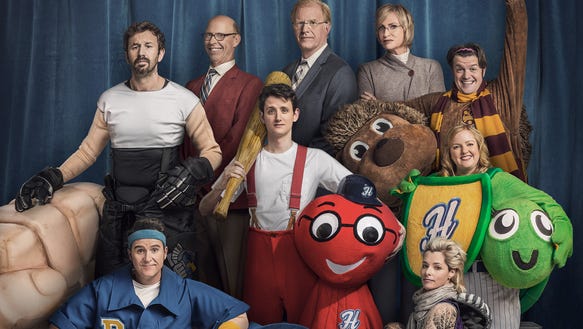Ava
DuVernay’s new documentary “13th” should be required viewing for
every high school civics course across the country. The film focuses on how the
American justice system has been systematically rigged against people of color
since the passing of the 13th amendment ended slavery in the 1800s, conveniently
leaving in the clause that strips humans of their rights as soon as they enter
the prison system and often long after they have served their sentences. This
documentary creates a comprehensive examination of how these laws have specifically
targeted the black communities through the segregation era and into the ever-expanding
war on drugs, dramatically spiking our incarceration numbers over time.
Released
in a particularly salty election year in which minority issues such as Black
Lives Matter and immigration have been front and center in the political discussion,
the film’s decision to release on Netflix streaming, rather than only engaging
in a limited theatrical run, allows for the possibility of a wider reach and
deeper cultural impact.
The
movie gives us many damning statistics, including the fact that America
accounts for 25% percent of the worlds prisoners, despite only representing 5%
percent of the global population, or how African American’s make up 40% of
those incarcerated, even though they only account for 6.5% of the total U.S.
population. These stats are then supported by showing us how both republican
and democrat lawmakers have continually stacked the legal deck against
minorities to keep prison filled and profits high.
DuVernay
makes the argument that slavery didn’t end with the passing of the 13th
amendment, rather it was merely shifted to the prison systems. When seeing
footage of minority inmates performing free labor for many successful American
manufacturers, it’s hard to argue against this position. One of the stronger
points made in the film—also brought to light a while back by comedian John
Oliver on his HBO program—is the governmental part played by the American
Legislative Exchange Council (ALEC) who guides the passing of many restrictive
policing and incarceration policies, based on the whims of the powerful corporate
lobbyists who fund their initiatives. These initiatives include California’s damaging
three strikes policy and mandatory minimum sentencing that took judicial power
away from judges and gave it to prosecutors. No matter your race or political persuasion,
one ought to be disturbed by how big of a role corporations have played into
the withering of freedoms, the expansion of militant policing and growth of
America’s prison industrial complex.
Formally.
the documentary shifts between archival footage and talking-head interviews by
the likes of activists such as Angela Davis and Bryan Stevenson, educators like
Jelani Cobb and commentators and lawmakers such as Newt Gingrich. Graphics and popular
music is implemented for the purposes of style and pacing but never distracts
from or overwhelms the film’s content.
Here DuVernay
brings the activist spirit and polemic energy that she sheathed with “Selma” in
order to graciously portray the life and reputation of Martin Luther King Jr. Whereas
2014’s “Selma” aimed to bridge differing political points of view under the reverence
of a classy, performance-oriented prestige picture, “13th” takes off
those silk gloves and bares its anger and outrage with a meticulously
researched take-down of the white supremacy that’s built into our government’s interpretation
of law and order. This documentary is not a casual watch and it was made with
the purpose to complicate the hotly divided conversations created by our culture
of stagnant left-right squabbling, and for that alone it’s one of the most
important and essential films to come out this year.
Grade:
A
Originally Published in the Idaho State Journal/Oct-2016



